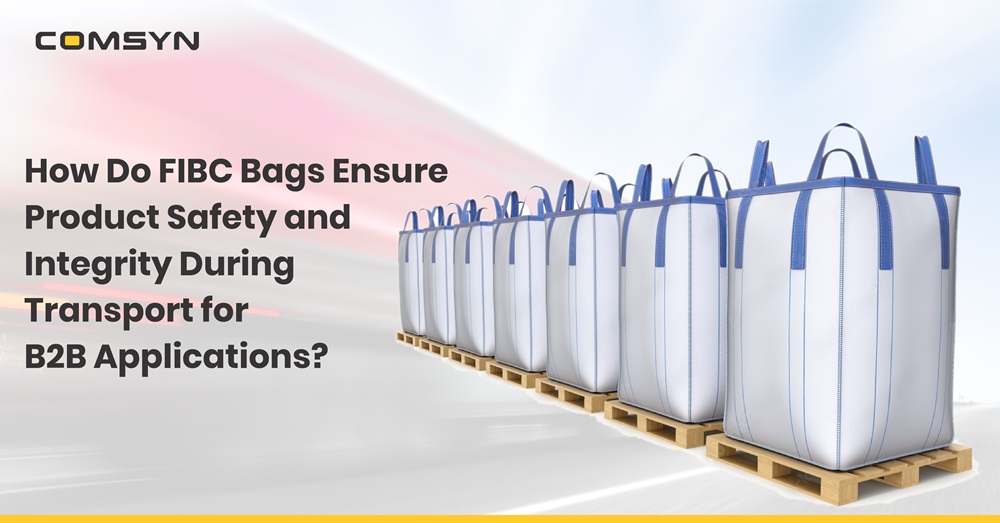In the realm of business-to-business (B2B) applications, ensuring the safe and secure transport of goods is paramount. From raw materials to finished products, maintaining product integrity throughout the supply chain journey is essential. One key player in this process is the Flexible Intermediate Bulk Container (FIBC) bag. These versatile bags play a crucial role in safeguarding products during transit, offering a myriad of benefits for B2B applications. Let’s delve into how FIBC bags serve as guardians of goods in the intricate landscape of B2B applications. FIBC bags offer a myriad of advantages in the transportation realm for B2B applications. Their versatility, cost-effectiveness, and eco-friendliness make them an ideal choice for businesses seeking reliable solutions for the secure transit of goods. Additionally, their reusable nature contributes to sustainability efforts while reducing overall logistics costs. FIBC (Flexible Intermediate Bulk Container) bags are widely used in bulk transportation due to their durability, flexibility, and cost-effectiveness. Designed to handle large volumes of materials, these bags are ideal for transporting agricultural products like grains, seeds, and fertilizers, ensuring safe storage and easy handling. In the chemical industry, FIBC bags are used for securely transporting powdered and granular substances while minimizing contamination risks. Their strong and lightweight design makes them perfect for carrying construction materials such as sand, cement, and gravel. Additionally, FIBC bags are commonly used in the pharmaceutical and food industries to transport sensitive materials while maintaining hygiene and safety standards. With their high load-bearing capacity and reusable nature, FIBC bags streamline logistics, reduce packaging waste, and enhance efficiency in bulk material transportation. Following these guidelines ensures the safe and efficient usage of FIBC bags, minimizing risks and enhancing the longevity of bulk material storage and transportation. In the dynamic landscape of B2B transportation, where reliability and efficiency are paramount, FIBC bags stand out as a reliable solution for ensuring product safety and integrity. With their robust construction, customizable features, and adherence to industry standards, FIBC bags provide businesses with peace of mind, knowing that their goods will reach their destination securely and intact. As businesses continue to prioritize supply chain optimization and risk mitigation, FIBC bags remain an indispensable asset in the journey toward seamless B2B logistics. 1. What are FIBC bags, and how do they differ from other packaging? FIBC bags are large, durable bulk containers designed for efficient storage and transport, unlike rigid or small-scale packaging. 2. How do FIBC bags prevent contamination or damage in transit? 3. Can FIBC bags be customized for specific B2B needs? 4. How do FIBC bags reduce product loss during transport? 5. Do FIBC bags meet safety and regulatory standards?How Do FIBC Bags Ensure Product Safety and Integrity During Transport for B2B Applications?

How do FIBC Bags Ensure Product Safety During B2B Transport?
Advantages of FIBC Bags in Transportation for B2B Applications
Efficient and Versatile Bulk Transportation with FIBC Bags
Guidelines for the Safe Usage of FIBC Bags
Conclusion
FAQs
They feature dust-proof seams, liners, and anti-static properties to safeguard contents from contamination and damage.
Yes, they can be tailored in size, material, coating, and handling features to meet industry-specific requirements.
Their sturdy construction and secure closures minimize spillage, leakage, and product wastage.
Yes, they comply with global safety and quality regulations, including ISO and UN-certified standards for hazardous materials.
How Do FIBC Bags Ensure Product Safety and Integrity During Transport for B2B Applications?


